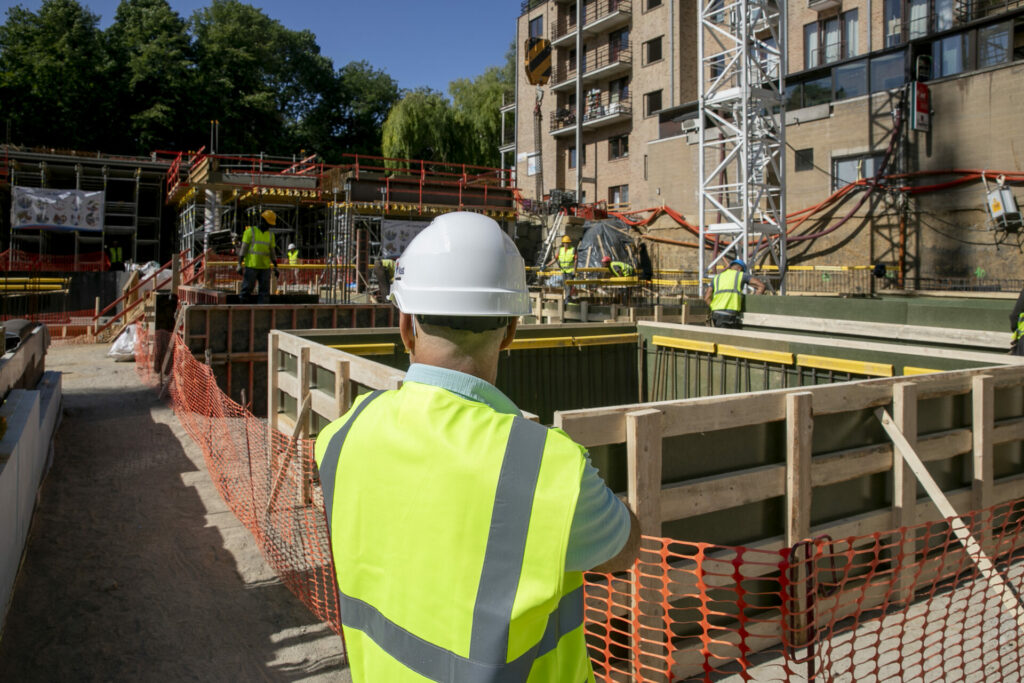Employment in the Brussels Region has increased in recent years, albeit less strongly than in Flanders and Wallonia, the latest study by the Brussels Institute for Statistics and Analysis (IBSA) has shown.
Over the period 2014-2021, total salaried employment, and the increase in employment in the Brussels Region (jobs newly created or moved from another region) is comparable to the rest of the country.
On the other hand, the proportion of jobs that have disappeared or moved to other regions is relatively higher in Brussels than in the other two regions. Half of all salaried jobs in the Brussels Region are taken up by commuters.
Analysis by sector
In many fields characterised by higher job increases and decreases, such as hotel, catering, construction, trade, administrative and support services (including domestic work and temporary employment), job decreases are higher in the Brussels Region than in the rest of Belgium. This has been the case every year since at least 2014.
This can partly explain the lower increase in salaried employment in the Brussels Region.
The administrative and support services sector remains a promising in terms of employment, thanks to even greater increases in employment, which lasted until the onset of the Covid-19 pandemic.
Yet the Brussels construction sector in recent years has seen a decline in salaried employment, but a strong increase in self-employment, which has kept total employment in the sector at an almost constant level.
Other sectors, such as the non-market sectors (public administration, education, health and social work) are less dynamic and are characterised by a higher degree of employment instability.
That said, these are the three most important salaried employment sectors in the Brussels Region – with more opportunities than in Flanders or Wallonia. This important presence combined with a lesser sensitivity to the economic situation partly explains the lower growth of total employment in the Brussels Region, the IBSA says.
Its study also provides some indications on employment levels after the peak of the Covid-19 crisis. Between 30 June 2020 and 30 June 2021, there were a total of 11,144 new jobs in the Brussels-Capital Region, indicating a recovery in the labour market.
Employees working in and around Brussels
The growth in jobs can also be explained as being the the result of an increase of 40,989 newly created jobs in the Brussels-Capital Region, or jobs that have relocated within the same company to the Brussels-Capital Region, and a decrease of 29,845 jobs that disappeared or were moved within the company outside the Brussels Region.
Behind employee changing relocations, there is a wide variety for the period 2020-2021 (as of 30 June): 103,617 workers started work in a company in the Brussels Region; 4,910 workers came to work in the Brussels Region after having worked in the same company in another region; 90,424 workers stopped working in a company in the Brussels Region; 6,959 workers went to work in the same company outside the borders of the Brussels Region.
The proportion of workers who move within a company from or to the region is relatively higher in the Brussels Region than in the other regions. According to IBSA, this is due to the more restricted territory of the Brussels Region.
The number of intra-company movements of workers in the Brussels Region is relatively small.
The Brussels Institute based its findings on a study conducted as part of the DynaM project, a partnership between the National Social Security Office (NSSO) and the Onderzoeksinstituut voor Arbeid en Samenleving HIVA of the KUL, co-financed by the Walloon Institute for Evaluation, Forecasting and Statistics (IWEPS), the Work, Social Affairs and Economic Department of the Flemish regional administration.

